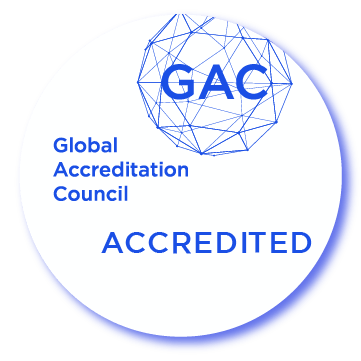
If you would like to take this course as part of the ITI Certificates towards a Ubiquity degree, please take the course through the ITI platform.
Course Description:
Every society tends to elaborate on the educational systems that best match its vision of the world and its anthropological model. Under every educational model and method and every educational action, there is always a certain vision of the world and a special model of a human being. From a transpersonal and integral perspective, we can say also that every educational model and every educational action arises from a certain state of consciousness.
Many contemporary observers from different fields of knowledge agree that a reform of the education system is late and necessary to respond effectively and creatively to the main problems of disruptive challenges of the 21st century. Most of these problems are complex problems: management of globalization processes, disruptive technological evolution (which will radically change the world of work and our way of life), ecosystem imbalances, demographic and health problems, climate change, inequalities, migration crises, etc.
We live in a society that has been called VUCA society. VUCA is an acronym that stands for Volatility, Uncertainty, Complexity, and Ambiguity. Within this context, education has a very difficult task, because it must educate an emerging world whose signs are very clear, but which is not yet there. So, from an Integral Transpersonal point of view, the task of education has to become that of promoting the development of a new human being: women and men capable of finding a stable center in themselves when everything changes very quickly, making friends with uncertainty, as a natural existential condition, thinking in a complex way understanding the true nature of ambiguity. We need men and women who are aware, with open and creative minds, capable of facing in an innovative way what lies ahead, with compassionate hearts, who are capable of acting ethically, but not dogmatically.
An ITE paradigm can promote the awakening and the development of qualities, that could make us more responsible towards ourselves, others, the environment. Qualities as awareness and compassion, but also freedom, responsibility, creativity, will, joy, and many others can help us to live better, in a state of deeper inner well-being, and collaborate, feel and act united even within individual and cultural diversity. Within a transpersonal vision, these qualities are qualities of the Self and education must take care of them. Education can teach to awake, recognize, radiate, embody them. At another level an ITE paradigm could help anyone who works in education and training sectors, anyone who plays an educational role in the family, in interpersonal relationships, in groups of various kinds, to achieve more awareness and more ownership of educational issues and learning processes.
Learning Outcomes:
By the end of this course you should be able to:
- identify some main guidelines of an Integral and Transpersonal approach to Education and have a framework for carrying out multiple further research projects;
- describe some contributions of Transe Learning Method and Psychosynthesis Pedagogy to an ITE paradigm;
- learn to observe educational phenomena from an integral and transpersonal point of view to create educational projects aligned with this perspective; and,
- experiment with some transformative practices for the training of educators according to an ITE model.
Faculty:
 Gabriella Delmonte is Doctor in Sciences of Education, Expert of Training processes, Pedagogist, Transpersonal Advanced Professional Counselor, Supervisor and Trainer.
Gabriella Delmonte is Doctor in Sciences of Education, Expert of Training processes, Pedagogist, Transpersonal Advanced Professional Counselor, Supervisor and Trainer.
She studied and practiced Psychosynthesis and Biotransenergetics. She deals with their applications in the field of education and especially the training of educators. She works for the promotion of integral and transpersonal theories and methods for a change in the paradigm of education. She works as a counselor and trainer with educators, parents, teachers, counselors, music-therapists and others, who work in the field of help relationships. She worked at University Milano-Bicocca as an assistant in the Science of Educations department, in the courses of Psycho-Pedagogy of Language and Communication and Theories and models of Pedagogical Counseling. She also worked at the University of Studies of Milan as a trainer in Sciences of Education in a course for the enablement of future school teachers. She works as an education counselor and collaborates as a counselor and trainer with counseling schools, music-therapy schools, companies. She published some articles on Psychosynthetic Counseling. She is the author of books: Sulle tracce dell’Invisibile (On the path of the Invisible) and (with M.T. Marraffa) Laboratorio transpersonale (Transpersonal laboratory). Recently she authored the book (to be published) Transe Learning. An Integral Transpersonal Education model for education in 21st century, about an Integral Transpersonal Education paradigm and the contribution of Biotransenergetics to learning issues.
Course Modalities:
Non-Credit Options
Lite Level – This course is delivered on-demand with no faculty interaction and is perfect for lifelong learners who want to go at their own pace and who are not interested in academic credit but still want to experience the course.
Audit-No Credit – If you would like to participate when this course is offered in our Live Virtual Classroom mode, you may attend the live faculty webinars but will not be required to submit assignments for credit.
If you take a few courses and decide you want to officially enroll in a degree program, you can gain academic credit for Lite versions or Audit-No Credit versions by paying the difference between these course fees and a normal academic fee, successfully completing quizzes, submitting your reflection journals, and delivering a Final Creative Assignment that will be graded.
For-Credit Options
Live Virtual Classroom: Study that takes place within Ubiquity University, in which Ubiquity academic coursework is accomplished through attendance in Live Webinars, with faculty and student interaction being a part of the Live Webinar content. To receive academic credit, you must not miss more than 3 live sessions, you must complete the quizzes and submit any other required assignments (if any), and a final creative assignment for grading at the degree level you are enrolled in.
Internal Online Independent Study: Study that takes place within Ubiquity University, in which Ubiquity academic online coursework is engaged in independently on one’s own and does not include faculty interaction. To receive academic credit, you must complete the quizzes and submit your reflection journals and final creative assignment for grading at the degree level you are enrolled in.
The rules guiding our assignment collection and grading process can be found here: Ubiquity University Grading Policy
Information about how we process refund or cancellation requests can be found here: Refund and Cancellation Policy.
Our shopping cart is simple and easy to understand. If you do not have a user account, you will be able to create one upon purchase. Save your username and password as you will need it to login to access course materials later. For more detailed, step-by-step instructions you can review our tutorial How to Purchase a Course. Again, if you experience any issues, please email Veronica Saldias at registrar@ubiquityuniversity.org.
We allow students at all academic levels to participate in our online courses. However, those students who are enrolled in MA or PhD programs are expected to offer a more sophisticated analysis on reflection tasks, writing assignments, and in the final creative assignment. You will be graded commensurate with your degree level. Except for the Final Creative Assignment, word counts are offered as guidelines. If you need to exceed the word counts to submit an MA or PhD level response, you may feel free to do so as long as the word count expansion is reasonable and necessary.
Course Contact Information:
Live Virtual Classroom macrocourses are delivered by faculty in live Zoom sessions. You will have a course facilitator who is available to answer questions and offer additional assistance and that information will be provided to you upon registration. Please do not email faculty directly with any technology or registration issues.
For on-demand lite or Internal Online Independent Study versions, click the “Chat” button down on the left-hand side of the screen for any technical issues or questions you may have about the content.


